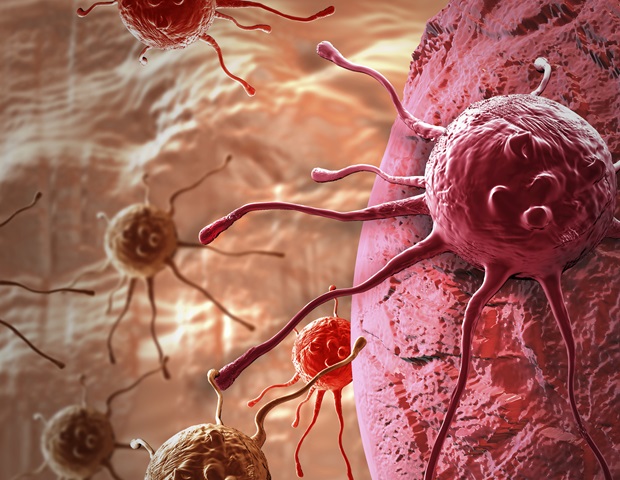A multi-institutional research co-authored by College of Texas at Arlington scientists uncovered a mechanism by which most cancers cells stop the immune system from activating and attacking the cancerous invaders.
The research, printed within the peer-reviewed journal Cell Studies, sheds mild on why immunotherapy therapies do not work for all folks or all illnesses. For instance, sure varieties of cancers-;together with colon, pancreatic, prostate and mind cancers-;have stubbornly resisted immunotherapy. And whereas breast, esophageal and head and neck cancers usually reply favorably, generally the therapies do not work as deliberate. Researchers nonetheless do not perceive precisely why.
Immunotherapy is an extremely promising new remedy avenue for most cancers, however we nonetheless have work to do figuring out why it would not work for all folks or varieties of most cancers.”
Jon Weidanz, UTA affiliate vice chairman for analysis and innovation
He and Soroush Ghaffari, a UTA postdoctoral fellow, have been co-authors of the research, together with colleagues at Leiden College in Leiden, Netherlands, and Karolinska College in Solna, Sweden. The crew decided {that a} key checkpoint within the immune system-;known as NKG2A-;would not have interaction with its particular binding molecule expressed in most cancers cells till the suitable sign is acquired.
“The crew reasoned that monotherapy brokers focusing on the NKG2A receptor will not be efficient with out receiving an inflammatory set off,” Ghaffari mentioned. “This would possibly clarify why medication designed to bind to the NKG2A receptor to disrupt this immune checkpoint have been solely efficient when utilized in mixture with different brokers that may induce the required inflammatory sign.”
A second main discovering of the research revealed how sure cancers can inhibit the immune system from activating its macrophages, that are specialised immune cells that play a crucial function in eliminating diseased or broken cells.
“These knowledge give us a brand new molecular understanding of why some immunotherapies work and a few do not,” mentioned Weidanz, who is also a professor of kinesiology with an appointment in bioengineering and a member of the Multi-Interprofessional Heart for Well being Informatics. “These outcomes will assist us determine and deal with extra cancers successfully with immunotherapy, serving to extra folks dwell longer lives regardless of a most cancers analysis.”
These findings have implications for immune system analysis and the event of simpler immunotherapy medication, mentioned Kate C. Miller, vice chairman of analysis and innovation at UTA.
“These are thrilling new analysis outcomes which have the potential to affect folks residing with most cancers,” Miller mentioned. “That is one other nice instance of the caliber of biomedical analysis we’re performing each right here at UTA and with our companions at different establishments.”
Supply:
College of Texas at Arlington
Journal reference:
Middelburg, J., et al. (2023). The MHC-E peptide ligands for checkpoint CD94/NKG2A are ruled by inflammatory indicators, whereas LILRB1/2 receptors are peptide detached. Cell Studies. doi.org/10.1016/j.celrep.2023.113516.

